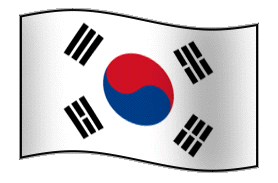
If you’ve ever left a movie theater disappointed, convinced you were born in the wrong time, cheer up: a golden age in film is happening right now. It’s not happening in the United States, nor in Italy, nor France. Right now, some of the best movies in the world are being made in South Korea. And, we have a number of them right here in the library’s Audio-Visual Department.
Bong Joon-Ho is a director whose work has been described as “black comedy written with invisible ink” in a book about international cinema. He has garnered a lot of scholarly attention recently in journal articles, too. His movies are as thoughtful, dark, and profound as they are riotously funny. The Host (2006), which remains the highest grossing South Korean movie of all time, is about a creature of disgusting proportions spawned from military industrial waste mismanagement. The monster is scary enough that they don’t shy from showing it throughout (unlike most monster movies where they show it finally at the end and it just has a flattened nose or a squid forehead or something), but the real horror results from the government’s stringent efforts to control the damages. The film is a brilliant rendering of the old adage, “we have seen the enemy, and he is us.”
My favorite Joon-Ho film is Memories of a Murder (2003), a crime drama based on the true story of South Korea’s first serial killer in 1986, followed closely by Mother (2009), which tells the story of a widowed acupuncturist who searches for a murderer after her only son is apprehended for the crime. In 2013 Joon-Ho put out an English language film called Snowpiercer, yet to be released in the North America, starring Tilda Swinton, Chris Bell, and Octavia Spencer, which will hopefully be shown at the Charles Theater. Joon-Ho is reportedly quite unhappy with the final cut it will have in the U.S., so brush up on his work now so you can tell your date how you really prefer the surpassing wit of his earlier films.
The very gloomy, at times devastating director Kim Ki-Duk also came out with a new movie in 2013 that is yet to be released stateside called Moebius which has been banned in its uncut form in Korea, a prohibition made more surprising given that there is no dialogue in the entire film. Kim Ki-Duk’s movies are violent and controversial but in my opinion his haunting films transcend these cheap descriptors. These are films you think about for days afterwards. Pieta (2012), Bad Guy (2001), Dream (2008), and Spring, Summer, Fall, Winter… and Spring (2003) are favorites.
If you are feeling fragile already and need lighter fare, try Kwak Jae-Yong’s rom-com My Sassy Girl (2001), Jang Joon-Hwan’s sci-fi romp Save the Green Planet! (2003), or Kim Sang-Jin’s very funny Attack the Gas Station (1999). Kim Ji-Woon’s The Good, the Bad, the Weird (2008), a western set in 1930’s Manchuria, is also excellent.
To read more about the incredible explosion of Korean film since the early 2000s go to D Level where these books are located: Kim Ki-Duk, Kim Ki-Duk (same title, different book!), New Korean Cinema, New Korean Cinema: Breaking the Waves, Korean Film, Exile Cinema: Filmmakers at Work Beyond Hollywood, The South Korean Film Renaissance: Local Hitmakers, Global Provocateurs.
Why do certain places and periods allow for very ambitious creative output? Is it a supportive arts infrastructure? Political turmoil or harmony? A handful of geniuses and a legion of fans? Or is it something as ineffable as a national mood, a gathering intensity? I have no idea, but let’s worry about that later! A golden period in film is like witnessing the northern lights; quiet the voice of scrutiny as you sit there and behold.
